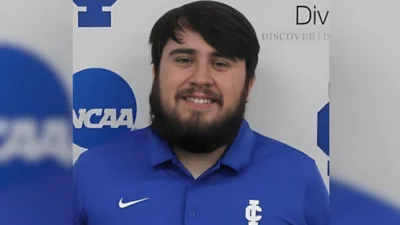State Representative Wayne Rosenthal (IL) | Representative Wayne A Rosenthal (R) 108th District
State Representative Wayne Rosenthal (IL) | Representative Wayne A Rosenthal (R) 108th District
On January 27, the world commemorates the anniversary of the liberation of Auschwitz-Birkenau as International Holocaust Remembrance Day. This day serves as a reminder of one of the darkest chapters in human history - the Holocaust.
The Holocaust was a state-sponsored persecution and mass murder of millions of innocent people by the German Nazi regime between 1933 and 1945. Among those targeted were European Jews, Romani people, intellectually disabled individuals, political dissidents, and homosexuals. The atrocities committed during this period resulted in the deaths of over 11 million people, with six million being Jews.
Adolf Hitler, the German dictator, envisioned a world dominated by the so-called "pure" German race. His pursuit of racial purity and territorial expansion led to the implementation of his "final solution" - the Holocaust. The Nazis systematically murdered Jewish people in gas chambers, through mass shootings, and by depriving them of basic necessities such as food, shelter, and medical care.
As World War II neared its end, the Nazis attempted to destroy evidence of their mass killings and concentration camps. However, the extent of the crimes was too great to conceal completely. The Nuremberg Trials of 1945-46 exposed the Nazi atrocities to the world. Survivors of the Holocaust bravely came forward, providing eyewitness accounts and proof of the mass atrocities. They played a crucial role in preserving the memory of those who were lost and ensuring that the truth would never be forgotten.
In Illinois, the significance of the Holocaust is not overlooked. The Illinois Holocaust Museum and Education Center stands as a testament to the importance of remembering this dark period in history. The museum's mission is to preserve the legacy of the Holocaust and teach universal lessons that combat hatred, prejudice, and indifference.
One of the most powerful aspects of the museum is the collection of stories from over 50 survivors of the Holocaust from the Chicagoland area. These survivors, who experienced unimaginable horrors, understand the importance of ensuring that history does not repeat itself.
Ben Goldwater, a Holocaust survivor, emphasizes the need to learn from the past to prevent its repetition: "I think people should learn what occurred so that history doesn’t repeat itself. And I think that’s the most important part of what we, the survivors, tell our audiences."
Judy Kolb, another survivor, stresses the significance of constantly retelling the horrific story of the Holocaust: "This is an important place and an important story, a horrendous story that needs to be constantly told so people will not forget about it."
Aaron Elster, a survivor who has made it his mission to speak out against the atrocities committed, states, "We, as survivors, have made this our mission to stand and speak out as loudly as our voices will carry and to those that will listen, that the atrocities committed against us and our families must never recur to any people."
Their words remind us of the importance of remembering the Holocaust and the lessons it teaches us. We must ensure that the world never forgets the horrors that occurred during this dark period of history. By doing so, we can work towards creating a future free from hatred, prejudice, and indifference.






 Alerts Sign-up
Alerts Sign-up